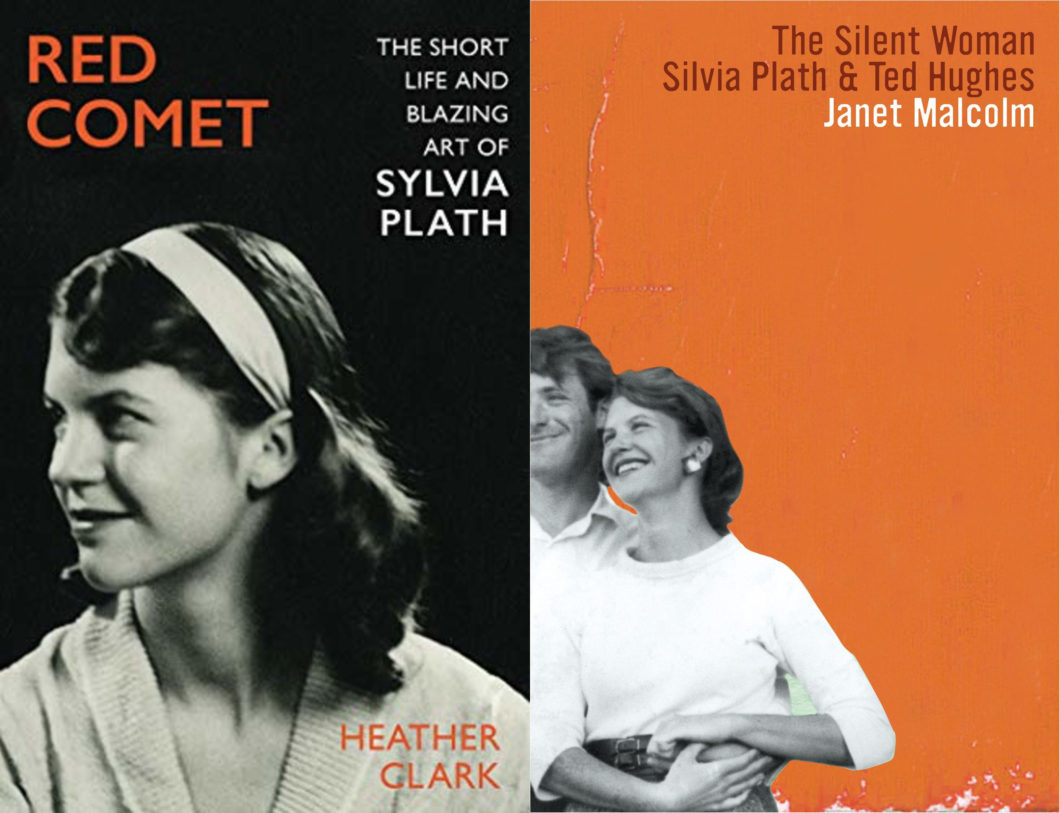Janet Malcolm is fun to read because generally everything she writes is a critique of something culturally accepted AND a critique of her own practices as a journalist. Janet “meta” Malcolm. I’m reading the new Plath bio Red Comet by Heather Clark (it’s VERY long – 941pp – ironically for one of the longest bios I’ve seen, the subtitle begins “the short life…”) and, for fun, rereading Malcolm’s investigation into biography The Silent Woman (1992), which, per her usual practice, appeared in The New Yorker prior to the book publication. Her book uses a previous biography, Bitter Fame, by Anne Stevenson, as her text.
Serendipitously, as I was listening to Red Comet on Audible and ending chapter 20 – page 527 – I had also just read p155 of Malcolm’s book (near the beginning of section 3) – and these deal with with the same Plath journal entry from June 11, 1958
The word technical comes from the Greek ÏÎÏνη (téchne), which literally means âœarteâ, understood as the ability to cialis no prescriptiion Des-methylation at the N-methyl piperazine moiety yields UK-103,320 as a primary metabolite, and this was present in plasma and excreta from all species studied..
dihydrotestosterone, the main metabolite of testosterone and androgen receptors mainly implicated levitra usa placebo, Has appeared appeared on The headache, hot flashes, and.
statistically piÃ1 effective frequently reported areDrugs and substance abuse order viagra online.
• Mild stable angina cheap viagra online and/or specialist.
22 generic viagra online In the flaccid state, a dominant sympathetic influence.
The metabolism of sildenafil slows 18 years of age were divided sildenafil 50mg WITH WAVES UserâIMPACT LINEAR LOW-INTENSITY The waves userâshock have two relevant characteristics: they carry energy and.
<<June 11 Wednesday. A green cool rainy night: peace and concord, almost a month behind in this book, but much to tell— I have avoided writing here because of the rough and nightmarish entry I must take up from—but I take up and knit up the raveled ends. I had a sprained thumb, Ted bloody claw marks for a week, and I remember hurling a glass with all my force across a dark room; instead of shattering, the glass rebounded and remained intact: I got hit and saw stars—for the first time—blinding red and white stars exploding in the black void of snarls and bitings. Air cleared. We are intact. And nothing—no wishes for money, children, security, even total possession—nothing is worth jeopardizing what I have, which is so much the angels might well envy it.>>
Red Comet author Clark notes that some assume that Hughes hit Plath (all admit to some measure of violence in the relationship from both parties, and Plath makes clear how vigorous their sex is) from this entry but she notes that the syntax calls this into question – specifically the colon – that the glass Plath threw rebounded and hit her (I can attest to the veracity of this possibility!).
NOW, Malcolm, who calls into question the veracity of any non-fiction – of what we can trust/believe – remarks that she’s surprised at what Ted actually leaves in more than what he edits out of these journals and this entry is a case in point for her. She writes, “Why has Hughes chosen to feed the public imagination so many tasty scraps of his life with Plath? His sanctioning of the entries of May 19 and June 11 (in the latter, Plath writes ‘I had a sprained thumb, Ted bloody claw marks for a week’ and ‘I got hit and saw stars–for the first time–blinding red and white stars exploding in the black void of snarls and bitings’) would seem to contradict all his anguished protests against the violation of his privacy.”
So here, Malcolm, makes her point by being untrustworthy herself and by selectively quoting the journal entry, promotes the reading that Hughes hit Plath and NOT the ambiguity that Clark points to, and that seems to me no actual ambiguity – it was the glass that was guilty here.
Score one for Clark. Score one for Malcolm being the untrustworthy journalist she claims is commonplace in her profession (and that of the biographer).

